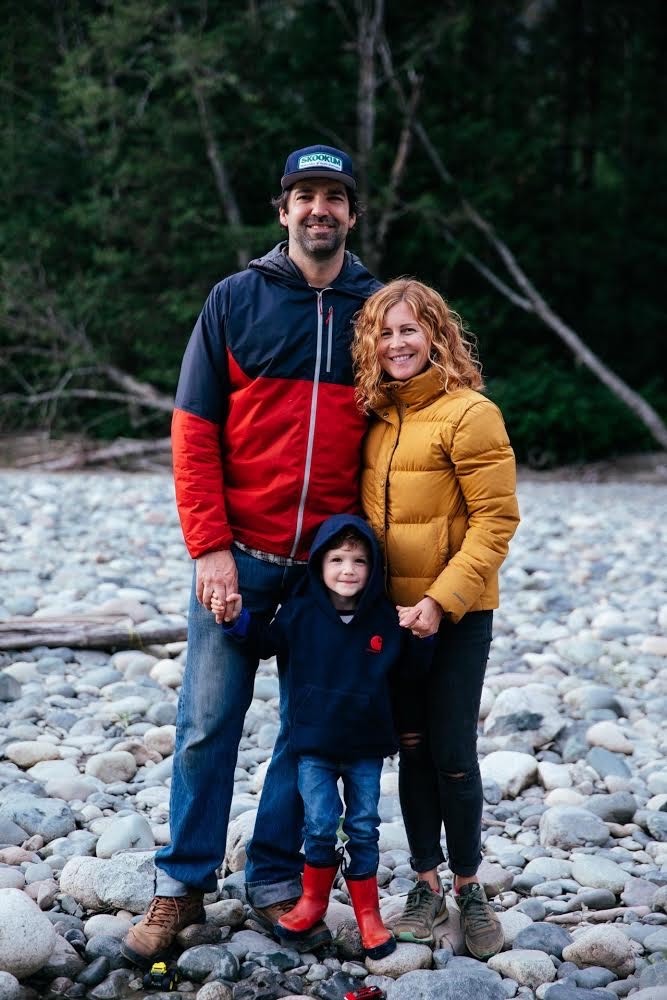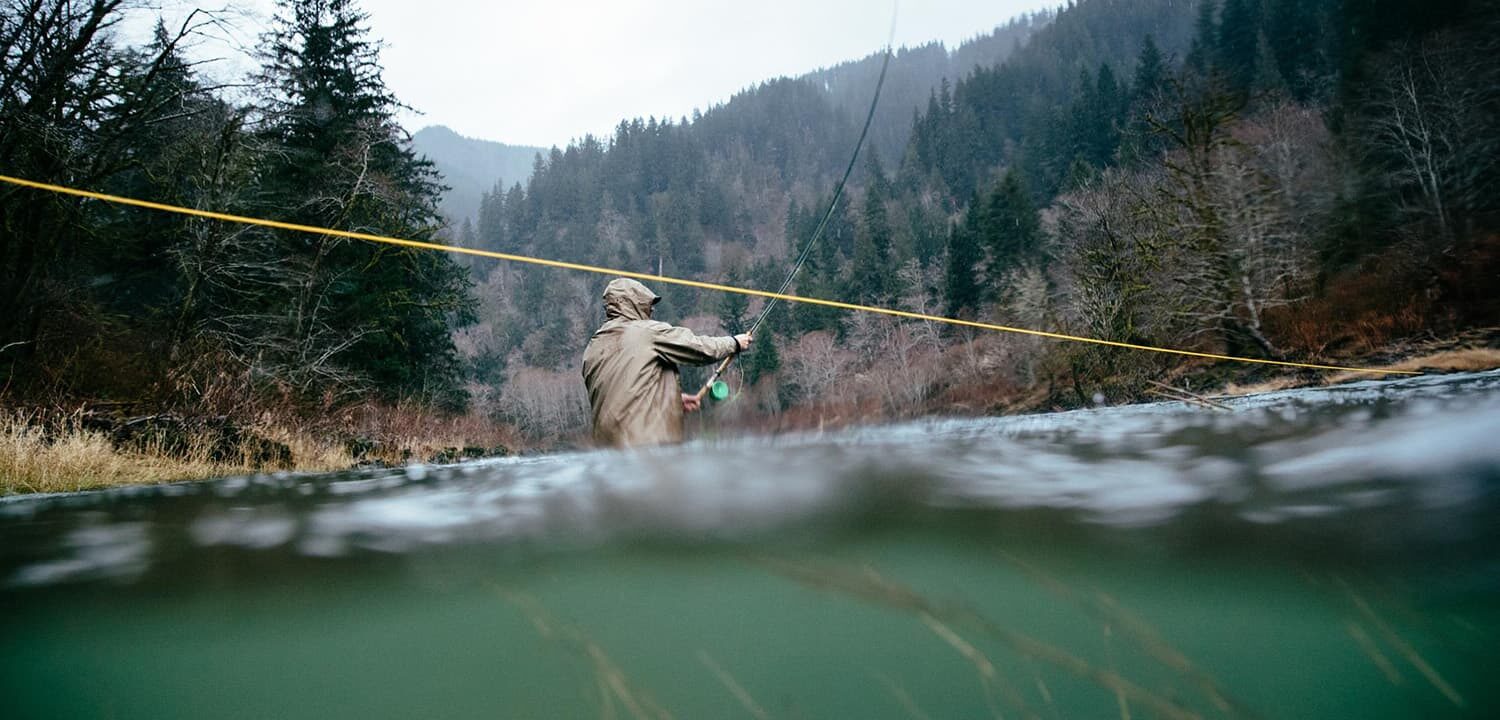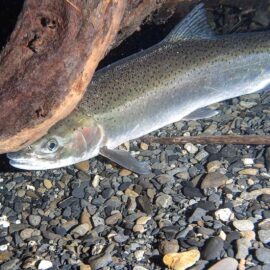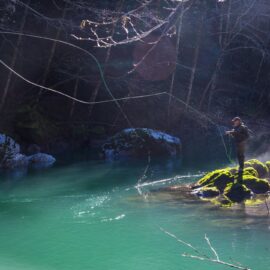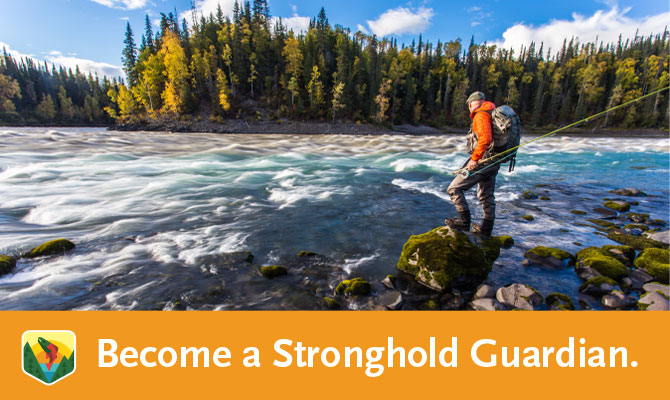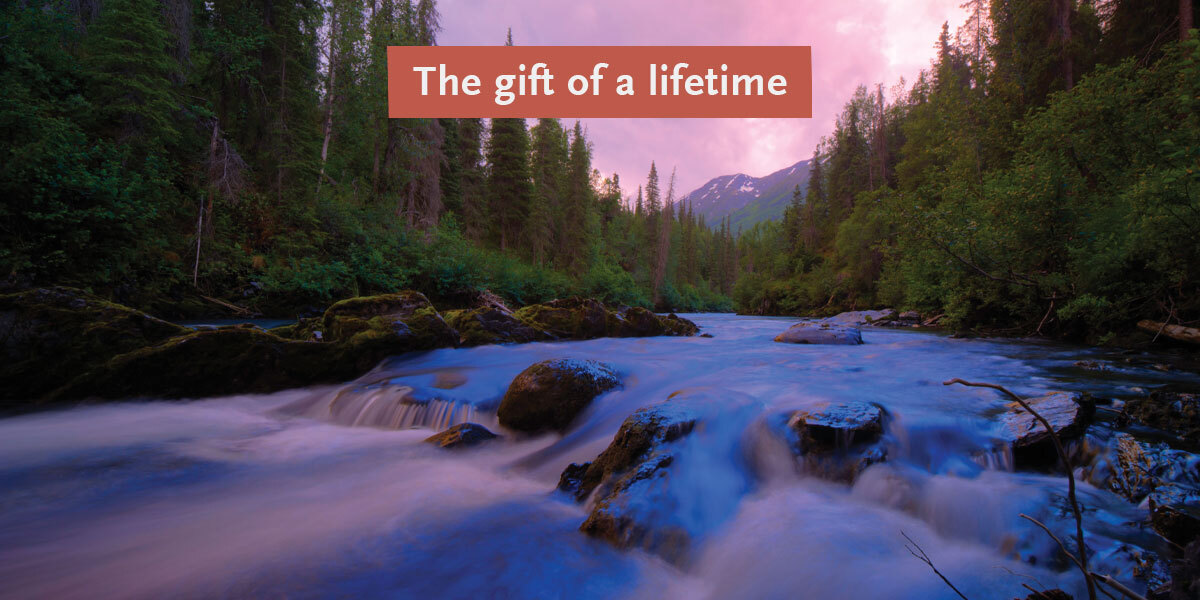The owner of Fish the Swing on knowing when to put down the two-handed rod.
Jeff Hickman knew exactly what he wanted for his 13th birthday, and it wasn’t cheap. His mom saved for a year to get him this gift: a guided fly fishing trip on the Sandy River.
“I was obsessed with fishing,” Hickman recalls some thirty years later. He caught the bug hanging around the local fly shop in Welches, Oregon, not far from Government Camp, a ski town on Oregon’s Mount Hood where he and his mom worked managing and cleaning rooms at Thunderhead Lodge. And when he caught a winter steelhead on a spey rod during that February birthday trip, he really fell “off the deep end.” He knew he wanted to do this for a living.
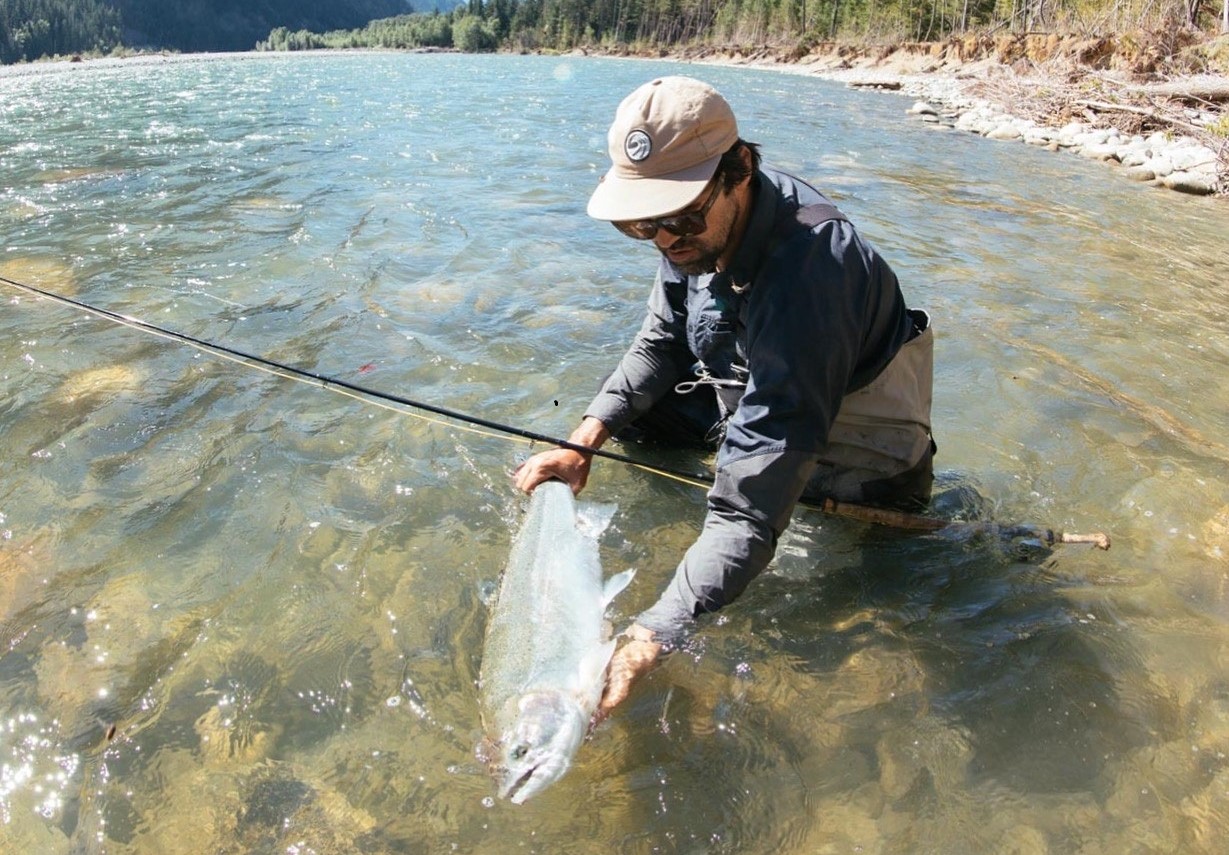
But choosing this life was never just about chasing fish, says the Wild Salmon Center Ambassador and owner of Fish the Swing, a guide/outfitter service that runs a jet boat tent camp on the Deschutes, a winter steelhead lodge on the Oregon Coast, and Kimsquit Bay Lodge on British Columbia’s Dean River. For Hickman, guiding meant a deep connection with the wild spaces where you’d find salmon and steelhead—hopefully thriving.
“It was always about conservation for me,” he says. “And even back then, in the 1990s, it was apparent that these fish were struggling.”
“It was always about conservation for me,” Hickman says. “And even back then, in the 1990s, it was apparent that these fish were struggling.”
That sense of stewardship has led him to make some tough calls in his professional life—none tougher than his August decision to cancel his fall 2021 steelhead season on the Deschutes. The numbers from the Bonneville Dam fish counting station were the lowest in recorded history: tracking around 15 percent of the 20-year average return.
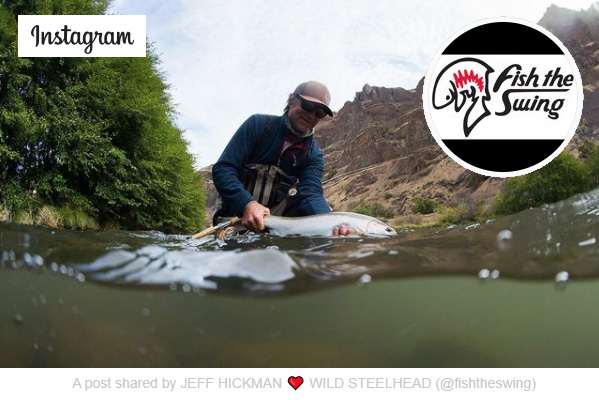
The run is on track to be about 10% of the 20 year average. As if that isn’t bad enough, the Columbia River has also been over 68 degrees for 55 consecutive days. Lethal temps for the few fish that are arriving. Because of this we have made the very difficult decision to cancel our ENTIRE Deschutes River guiding season. We do not feel we could operate our business ethically. Accidentally killing even one wild steelhead would be too many, we don’t have a single one to spare this year.
“We didn’t feel that it was ethical,” says Hickman. “It’s one thing to be a single angler out there. But we’re guiding six clients out there in jet boats every day. If we’re not going to stand up, who is?”
Roughly a week after Hickman’s announcement, the Oregon Department of Fish & Wildlife closed all steelhead fishing on the lower Deschutes for the month of September. The move provides little relief for these fish, he says, but does represent an acknowledgement by the state of the current crisis. These hard decisions will likely keep coming, between escalating drought, heat, and human pressure on wild Pacific salmon. And Hickman plans to be right there in the middle of the debates: standing up and speaking loud.
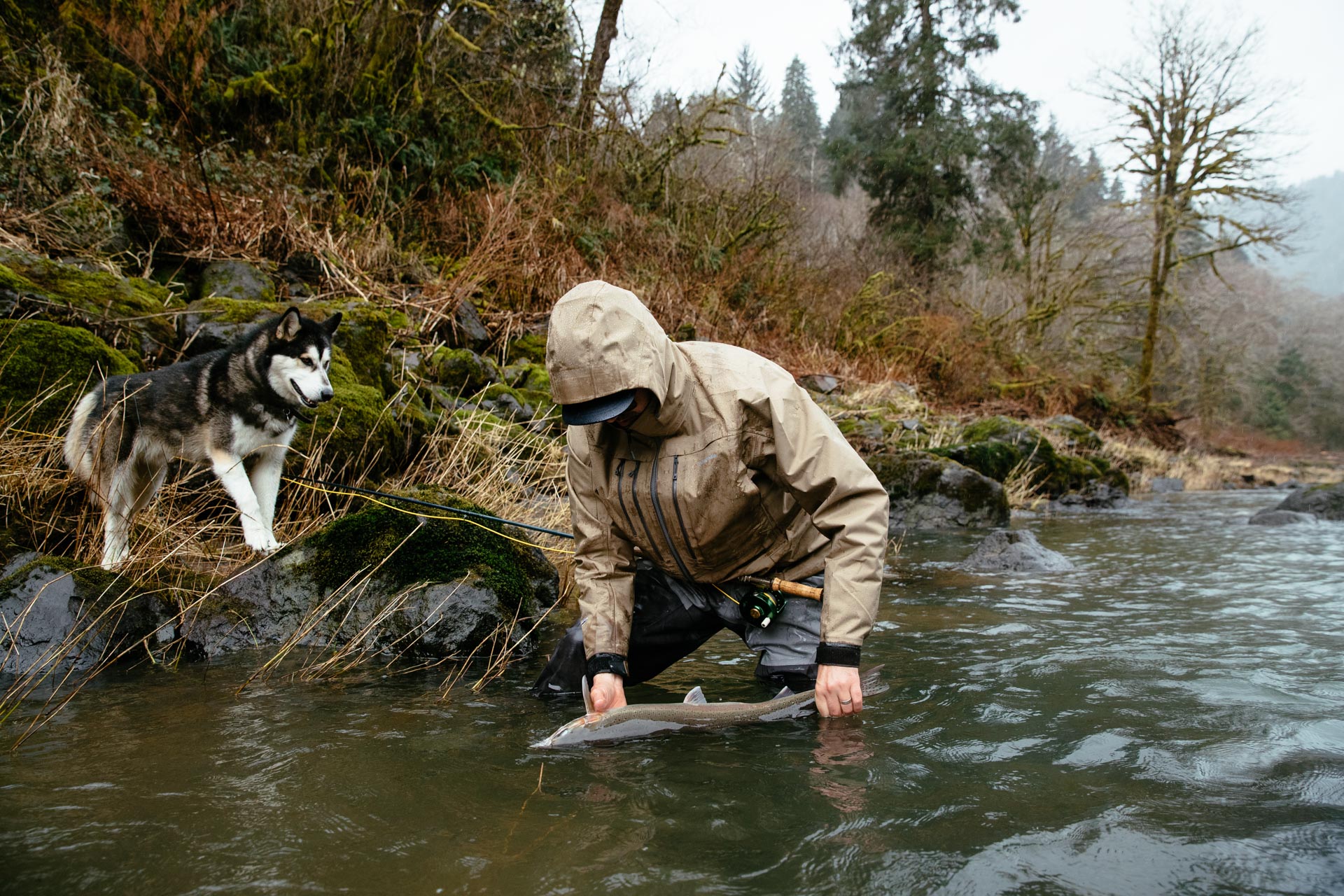
These hard decisions will likely keep coming. And Hickman plans to be right there in the middle of the debates: standing up and speaking loud.
Below, Hickman shares more about being a squeaky wheel, his faith in steelhead, and why he’s fine with putting down the fly rod, for now.
JEFF HICKMAN, IN HIS OWN WORDS:
Steelhead are the wildest animals in the world. When you stand in the river and a giant fish that’s migrated in from the ocean grabs your fly, you feel that power. These encounters are few and far between—it’s hard to explain that experience unless you’ve had it. And the more you learn about this animal and all that’s stacked against them, it’s amazing that they live to adulthood. Then to connect with one on your fly—it’s addictive.
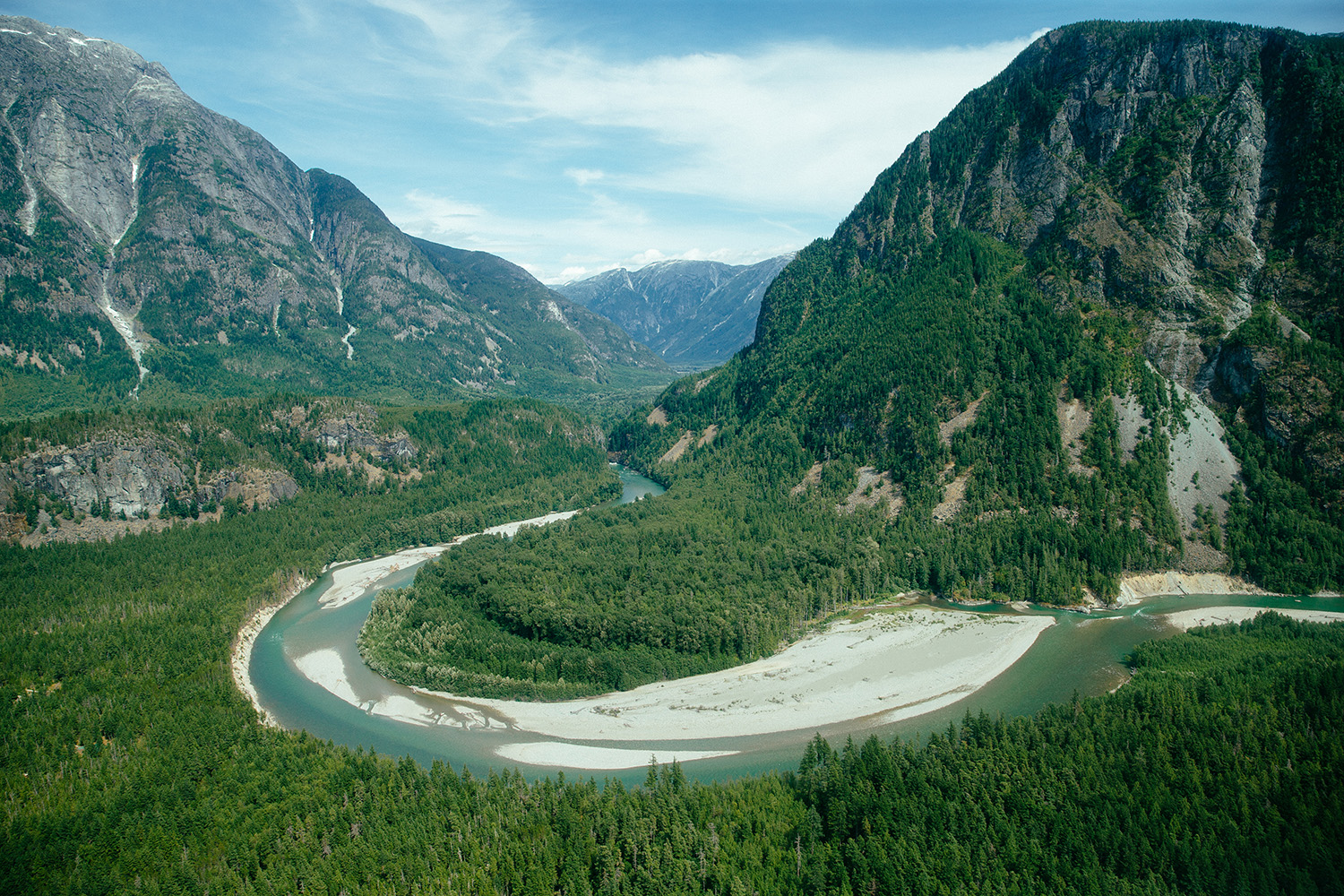
I’ve long been a part of Wild Salmon Center’s advocacy work on the Oregon North Coast. Then, when The Stronghold Fund started working in the Dean Channel, B.C.’s Central Coast, that represented two of the three fisheries where I make my living. I definitely wanted to be involved with that work. On a personal note: when I make noise or stand in protest, it’s easy for people to brush me aside as just one lunatic. But as an Ambassador for a well respected conservation group that represents an entire community, my voice carries further, has more weight.
When The Stronghold Fund started working in the Dean Channel, B.C.’s Central Coast, I definitely wanted to be involved with that work.
The stronghold approach: I’m always thinking about efficiency, and it’s certainly much more efficient to save what we still have than what we’ve effectively lost. I’m not saying it’s not important to also restore watersheds. But anytime we can save places like the Tillamook Rainforest and the Dean River—which is just pristine wilderness, the most intact steelhead habitat in the world—that’s going to be the most bang for your buck.
Anytime we can save places like the Tillamook Rainforest and the Dean River—which is just pristine wilderness, the most intact steelhead habitat in the world—that’s going to be the most bang for your buck.
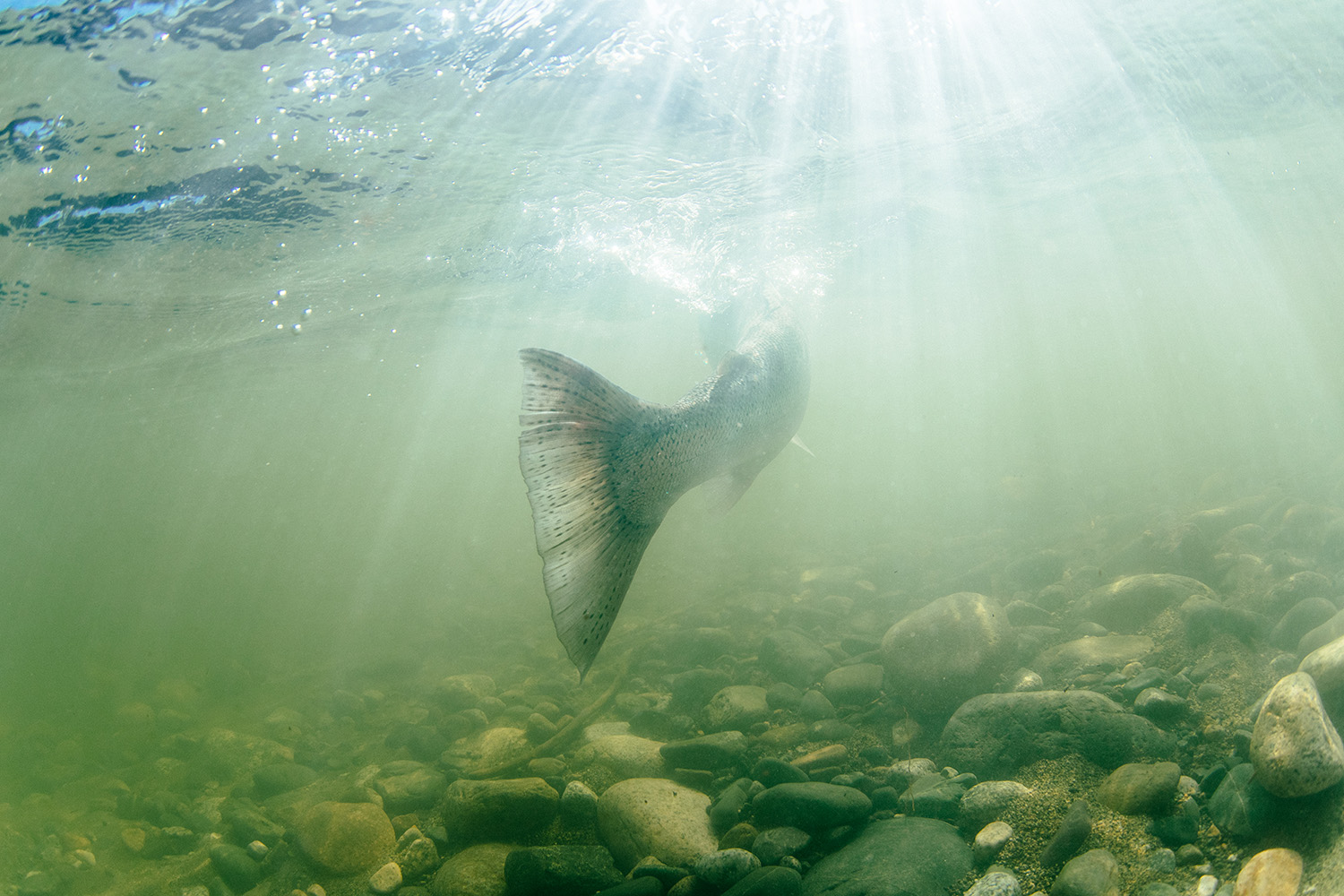
It is true that these fish are disappearing at a particularly alarming rate, especially right now. I’m seeing a lot more people fly fishing than ever before. And it sure seems like there are a lot fewer fish. It’s interesting: the harder these fish are to catch, the more people seem to want to catch them. Things that are challenging, people like. If you can catch a steelhead on a swung fly, it’s a pretty big achievement these days.
Anglers, we are the advocates. We have to stand up for what’s good for the fish. But we are having an impact, even with catch-and-release. Some steelhead do die, and every single one counts. It’s important for us to think about ways to limit our impacts and make responsible decisions.
Anglers, we are the advocates. We have to stand up for what’s good for the fish. It’s important for us to think about ways to limit our impacts and make responsible decisions.
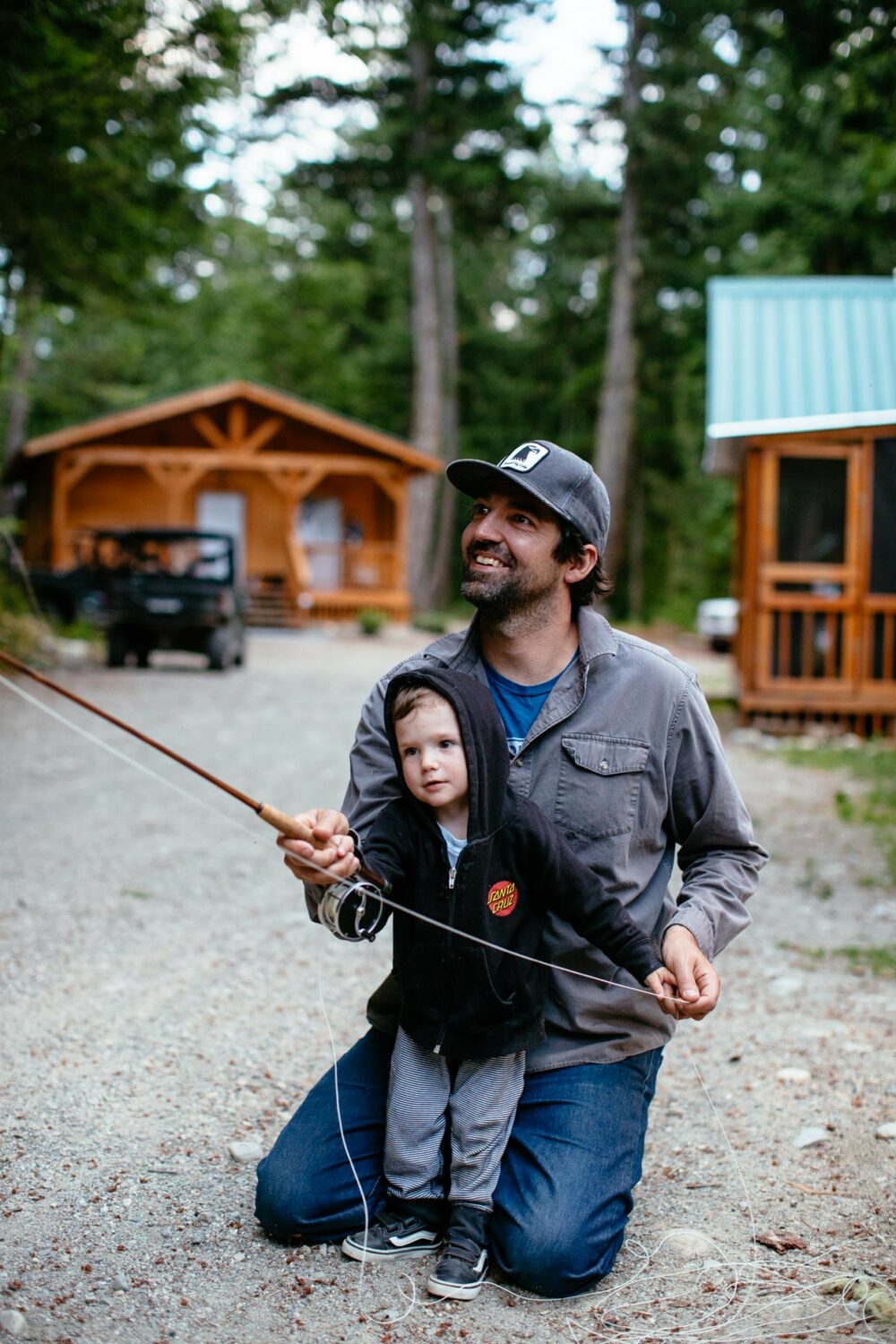
This isn’t just my job. This is my identity, my whole culture. And we’re at a very scary point in time. There’s nothing better than going on the river with my five-year-old son. And the most important thing for me is to make sure that he can have some of these experiences. I’m scared that this might not be a possibility. That’s why I’m okay with taking a break and trying to really elevate this issue. Right now, the most fulfilling part of this work for me is going to sleep knowing I’ve done everything I could do to help, to make this issue front and center. We need people who are NOT anglers to be paying attention.
Cancelling our season and going public with that, it definitely elevated the issue. I wouldn’t say that we’re the ones leading the charge by any means, but I think we have had a real impact. We’ve gotten the word out. Thousands of people had no idea that we were looking at the worst steelhead returns in history. We’re just trying to be responsible. We owe everything to these fish and they don’t owe us anything. I know that we did help get a lot of calls and letters to the Governor’s office and state agencies. The squeaky wheel gets the grease.
I think we have had a real impact. We’ve gotten the word out. Thousands of people had no idea that we were looking at the worst steelhead returns in history.
What needs to happen next, ultimately, is that the four lower Snake River dams need to come out. In Oregon, PGE needs to start releasing cold water into the Deschutes and managing it as the cold water sanctuary that it should be. And Washington State needs to identify and recognize their cold water sanctuaries on the north side of the Columbia, and protect them as refugia for salmon and steelhead. We need to do everything we can to preserve cold water for these fish, and also close critical areas of refuge to fishing so they can recharge along their great migration through lethal summer water temps.
There’s definitely a now or never vibe to this right now. But it’s very much a marathon. You have to maintain stamina. We’re likely looking at the same situation this time next year and beyond, so we can’t burn out.
These fish are incredibly resilient. They bounce back after volcanic eruptions, ice ages, everything. I have full faith in the species to recover. But we have to give them every chance to bounce back.
Even if I’m not fishing, just going to these places, to the rivers and oceans, the wild spaces, that’s very valuable for my mental health and clarity. Just connecting with the water. And these fish are incredibly resilient. They bounce back after volcanic eruptions, ice ages, everything. I have full faith in the species to recover. But we have to give them every chance to bounce back and not just endure death by a thousand cuts.
